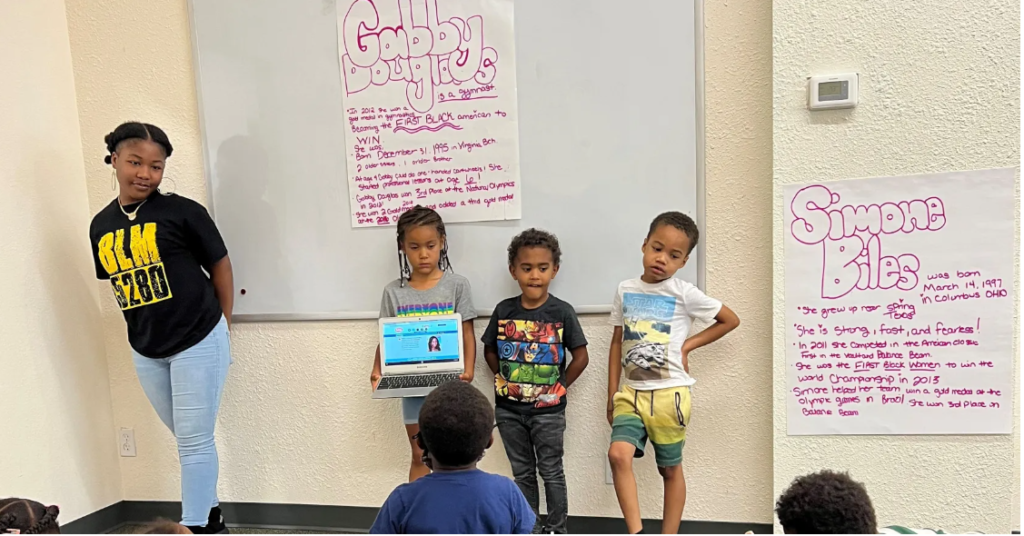I have been observing and writing about Denver Public Schools since 1995 and have witnessed heated political battles on a number of important issues, including weighty ones like how to redraw school boundaries as court-ordered busing came to an end.
But never have I seen anything like what transpired at the DPS board’s August 11 work session, which had to be cut short when audience members got into a heated argument sparked by board member bickering. It was flat-out childish.
What’s pathetic – and there isn’t a better word for it – is that all the unleashed passion had nothing to do with the school district’s business.
Based on state test scores released last week, many DPS students are in academic crisis, and some board members are ignoring that and opting to indulge in Trumpian grievance-fests instead of doing their duty.
The latest embarrassment centered on an interpersonal dispute between the board’s president, Xóchitl “Sochi” Gaytán and at least two other board members, possibly three. It’s hard to untangle.
Tay Anderson, the school board’s vice president, called out Gaytán at the meeting for violating board policy last spring by taking her grievances about alleged bullying, sexism and misogyny to the media without giving her colleagues a heads-up.
He asked for an apology, which wasn’t forthcoming, and then Gaytán doubled down, accusing Anderson yet again of being a sexist and misogynist.
That prompted a facilitator hired to be a disinterested intermediary to tell the board to grow up and stop setting a bad example for Denver’s students.
This is not only embarrassing for the district; it has become tedious. And ultimately it’s a massive distraction from the challenges DPS faces. You’d have to be a great deal more jaded than I am to believe some people welcome the distraction, but you almost have to wonder.
Colorado Measures of Academic Success (CMAS) results showed that the Covid-19 pandemic and the learning disruptions it caused disproportionately hurt DPS’ low-income students and students of color. Those are the very children the board, and most vocally Gaytán and Anderson, profess to prioritize.
Boardhawk has been writing for months about the board’s almost complete lack of focus on student learning. A story here last April revealed that board members had spent a grand total of 41 minutes publicly discussing student learning since taking office the previous November. That’s less than 2 percent of the meeting time during that period.
It hasn’t gotten any better since April.
What a total abrogation of responsibility this represents, especially once you take even a cursory glance at the CMAS results. An analysis by Chalkbeat found that DPS has the widest test score gaps in Colorado between White students and Black and Latino students.
Those numbers are nuanced in some interesting ways. Many Black and Latino students are poorly served by DPS, yes. But their scores aren’t far off statewide averages for those populations. The gaps in DPS are huge partly because White students do extraordinarily well in the district, far exceeding state averages.
That fact should be celebrated. White kids are, after all, the second largest cohort of kids in DPS. Closing the achievement/opportunity gap means figuring out how to take what works for White students and applying it to everyone else. That’s what the district’s new Strategic Roadmap vows to accomplish.
Does that mean implementing an excellent curriculum that is more culturally relevant? Hiring more teachers of color? It’s worth a concerted effort. What wouldn’t be OK is blaming the CMAS’s flaws for DPS’ failures.
Let’s see if the board can pivot toward relevance. Anderson took to the blog site Medium, where he maintains an active presence, and vowed to shift his focus back to students. Gaytán, meanwhile, seemed unwilling to let it go and move on. She told Westword last week that ‘“the abusive behavior toward me by two male colleagues” (Anderson and Scott Esserman) isn’t a thing of the past.
“There’s the dynamic of being a Latina woman as president on the board that’s playing out when it comes to a couple of men on the board struggling with the interpretation of the infrastructure,” Gaytán told Westword’s Michael Roberts.
“And when I receive the power struggle from these men, it feels abusive to the point that it appears as the men silencing the voice of a Latina.”
Perhaps it’s time for Gaytán to refocus as well. She represents southwest Denver, where in many elementary schools fewer than 20 percent of students met grade level expectations in English Language Arts and math.
Not a single elementary school in that part of town had even one-quarter of its students scoring proficient in math.
As mentioned above, Superintendent Alex Marrero’s much anticipated strategic roadmap was also released last week. Ideally, it would steer the district toward true equity and accelerated learning for the kids who need it most.
Even the best map in the world, however, will get you nowhere but wrapped around a tree if you’ve got Mom and Dad in the front seat having a screaming fight and trying to wrest the steering wheel away from one another.




